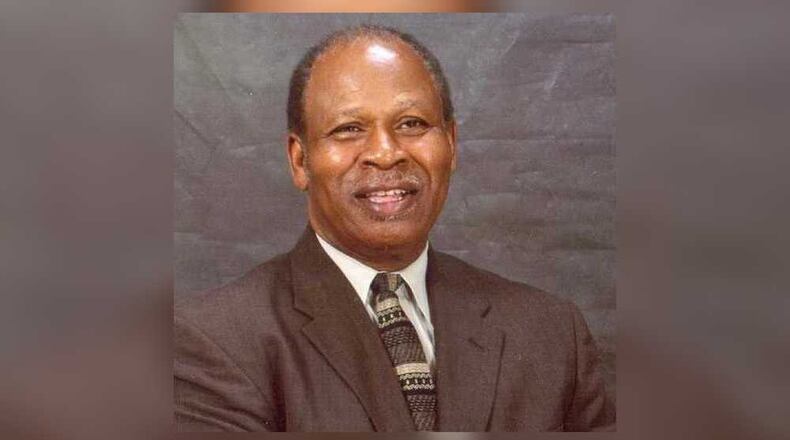Like World War II veterans, the civil rights pioneers in Atlanta and Georgia are aging, and the state lost a number of them in 2017.
Here are six of the many men and women we wrote about after their deaths -- people who lived through the era of falling barriers, often times leading the way.
• J.B. Smith
The Atlanta Student Movement of the turbulent 1960s had a story to tell. And J.B. Smith was determined to be a part of that.
John B. "J.B." Smith Sr., retired educator and longtime editor and publisher of the historically black Atlanta Inquirer, died at 81 in the spring.
Fulton County Commission Chairman John Eaves said of him, “Along the way, he was a trailblazer for other African-American journalists who would follow in his footsteps.”
• Isabelle Daniels Holston
On Dec. 1, 1956, before more than 100,000 spectators, four young women lined up inside the Melbourne, Australia, Cricket Ground for the 16th Olympiad’s 4- by 100-meter relay.
Nineteen-year-old anchor Isabelle Daniels, who trained in high school by running alongside the school bus her father drove, hit the wire at 45.4 seconds.
They were probably the first all-African-American women’s team of any sport to compete in the Olympics. Their time was good enough for a bronze, but all three medal-winning teams — Australia won gold and Great Britain silver — broke the previous world record.
When she retired as an amateur in 1959 she still held a world record in the 50-yard dash. Holston spent 35 years teaching and coaching track and basketball in several DeKalb County schools.
Read about this remarkable Decatur woman's life here.
• Frank Bates
Frank Bates grew up on a farm in Crawfordville, this historic home of Alexander Stephens, whohad served as Georgia governor and then as vice president of the Confederate States of America. Before Bates’ career ended he worked for two modern state governors, Zell Miller and and Joe Frank Harris, also for the state technical college system.
Bates became involved in the civil rights movement as a teenager, protesting the firing of five black teachers and advocating the schools’ desegregation.
After leading a student walkout, he was bused to an all-white school in a nearby community. On his third day at the new school, he had his jaw broken.
Fifty-two years later and hours before he died from a heart attack, one of those moments of karmic serendipity occured. His attacker tracked him down, called him and apologized.
Credit: HANDOUT
Credit: HANDOUT
• Preston Mobley Sr.
In, February, the city said goodbye to Preston Mobley Sr.
Mobley was the program manager and an on-air personality at Atlanta’s WERD, the nation’s first African-American owned radio station from the late 1950s onward.
The station was in the Prince Hall Masonic Temple building on Auburn Avenue, and one floor below it was the headquarters of the newly formed Southern Christian Leadership Conference.
Mobley played a role in the civil rights movement, as the Rev. Martin Luther King Jr. relied on him to get the news out.
• Erna Bryant
Erna Bryant was a soldier for good in Atlanta and also Boston, where she completed her doctorate in education at Harvard University.
The teacher had a knack for getting to the bottom of a problem, would open her door to anyone that was wanting to do something peacefully, and she did plenty, including taking a leading role in desegregating the Metropolitan Boston Transit Authority while living there. She died in March.
• Lorenzo Wallace
Credit: Elissa Eubanks / AJC
Credit: Elissa Eubanks / AJC
Lorenzo Wallace, a World War II Marine, U.S. Postal Service employee, Congressional Gold Medal recipient and a state Capitol fixture, who ended as Senate sergeant-at-arms, died in March at age 97.
A graduate of Booker T. Washington High School and Morehouse College in Atlanta, Wallace held many jobs - he worked well into his 80s - and lived a notable life, including joining the Marines in World War II. You can read about him here.
About the Author
Keep Reading
The Latest
Featured





